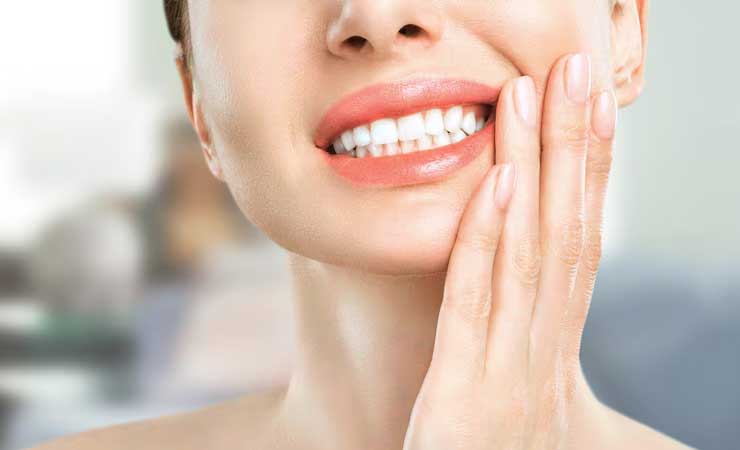Table of Contents
ToggleDental health is an integral part of overall health. However, some habits we unknowingly engage in daily can seriously threaten our dental and oral health. Dental issues such as gum disease, tooth decay, and sensitivity often stem from small but significant mistakes. Dentists regularly inform their patients to raise awareness about this issue. Here are 8 common dental mistakes you make every day without realizing it, and how you can avoid them…
1. Brushing Your Teeth Too Hard
Many people brush their teeth vigorously to make them cleaner. However, this habit gradually wears away the protective enamel layer on the tooth surface. Brushing too hard can also cause the gums to recede and expose the tooth roots, leading to sensitivity to hot and cold.

What should you do? Use a soft or medium-bristled toothbrush. Brush gently in circular motions without pressing down. Brushing should last at least 2 minutes. And this should be done twice a day.
2. Not using dental floss
Brushing your teeth only cleans the surface. Food particles left in between teeth are not removed by brushing alone. Not using dental floss allows bacteria to multiply and eventually lead to gum inflammation or tooth decay.
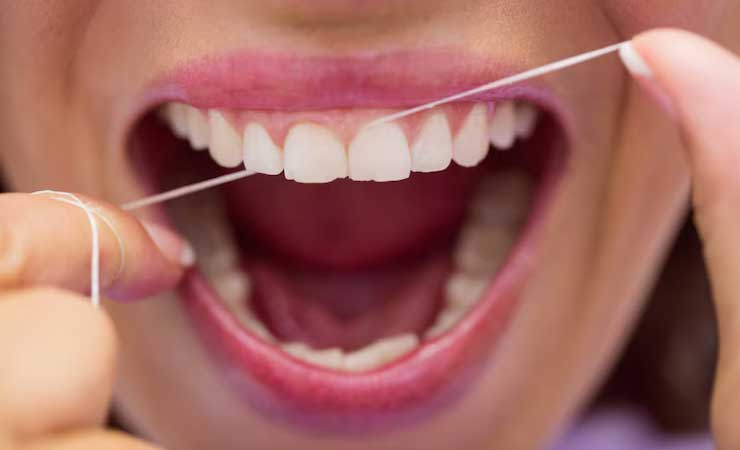
What should you do? Use dental floss at least once a day, preferably before going to bed at night. If you have tightly packed teeth, you need to be more careful. Alternatively, you can use face brushes or mouthwash.
3. Teeth Grinding and Clenching (Bruxism)
You may unconsciously grind or clench your teeth at night. This can cause wear on the tooth surface and microscopic cracks. Bruxism can lead to jaw muscle pain, headaches, and even broken teeth. Stress is the most effective factor that triggers this habit.
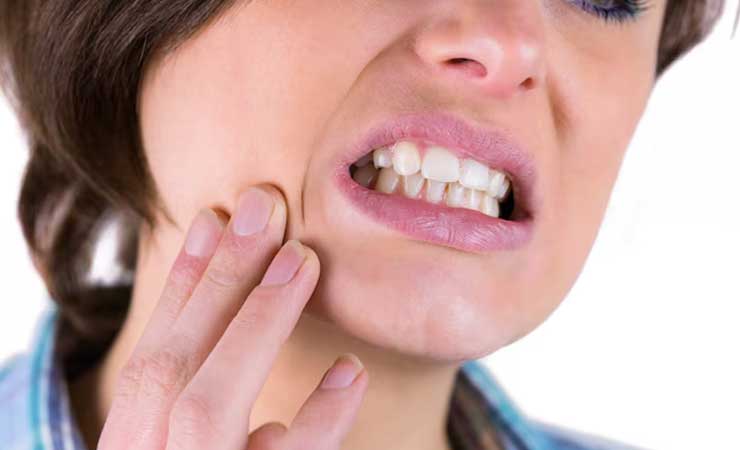
What should you do? If you feel jaw fatigue when you wake up in the morning, consult a dentist. You can protect your teeth with special mouthguards that you can use at night. Stress management techniques can also help reduce this condition.
4. Frequent consumption of acidic and sugary drinks
Sugary and acidic beverages such as cola, energy drinks, and fruit juices disrupt the pH balance in the mouth, damaging tooth enamel. Acidic substances soften tooth enamel and cause it to wear away over time. Sugar is an ideal food source for bacteria and increases the risk of cavities.

What should you do? Limit your consumption of these beverages. Instead of brushing your teeth immediately after drinking, rinse your mouth with water and wait 30 minutes before brushing. Using a straw can reduce contact time.
5. Brushing Your Teeth Immediately After Eating
Brushing your teeth immediately after eating acidic foods and drinks is particularly harmful. This process can damage tooth enamel. Enamel softened by acid is more easily worn away during brushing.
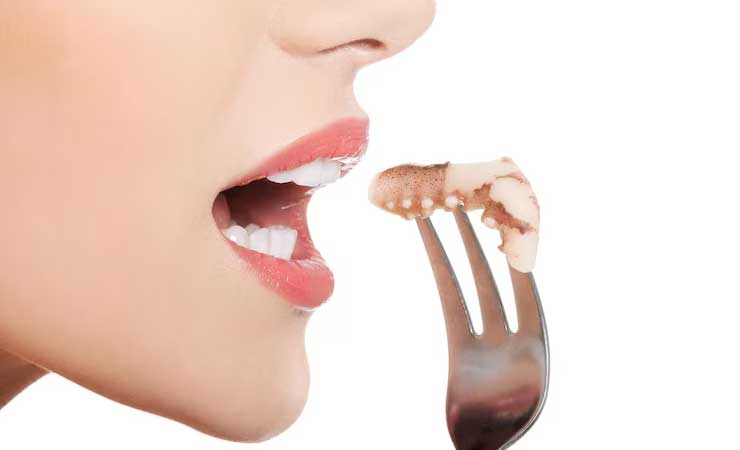
What should you do? Wait about 30 minutes after eating. During this time, rinse your mouth with water to balance the acid levels. Then brush your teeth.
6. Using Teeth to Open Hard Objects
Opening bottle caps with your teeth, tearing packaging, or biting your nails are very harmful behaviors. These actions can cause serious damage to tooth structure. Such habits can lead to cracks, fractures, and even root damage.
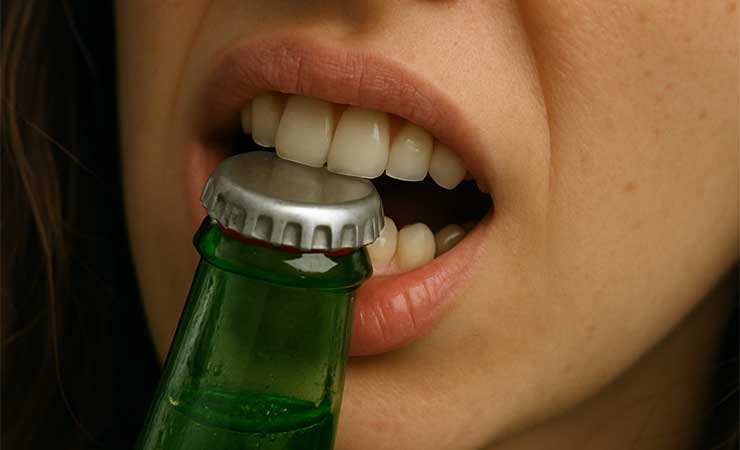
What should you do? Use your teeth only for chewing food. Always use appropriate tools to open hard objects.
7. Skipping Regular Dental Checkups
Many people do not visit the dentist unless they experience tooth pain. However, cavities often progress without symptoms. If tartar buildup, cavities, and gum disease are not detected early, they may require more serious interventions in the future.

What should you do? You should visit your dentist every six months for regular checkups to maintain your dental health. These checkups include an examination and tartar removal to support your oral hygiene.
8. Choosing the wrong toothpaste and products
Some toothpastes that claim to whiten teeth contain high levels of abrasive ingredients. Unconscious use of these products can cause tooth enamel erosion, increased sensitivity, and gum irritation.
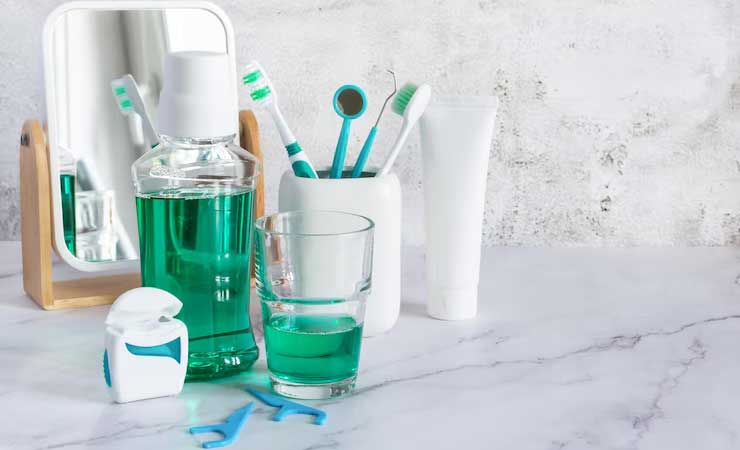
What should you do? Consult your dentist when choosing toothpaste and oral care products. If you have sensitive teeth, it is recommended that you choose products that contain fluoride and have a gentle formula.
Develop the Right Habits for a Healthy Smile
These small mistakes made unconsciously in daily life can lead to serious oral and dental health problems in the long term. However, with the right information and conscious habits, it is possible to protect your dental health. Regular check-ups, proper cleaning methods, and a healthy lifestyle are the keys to a lifetime of healthy smiles.

